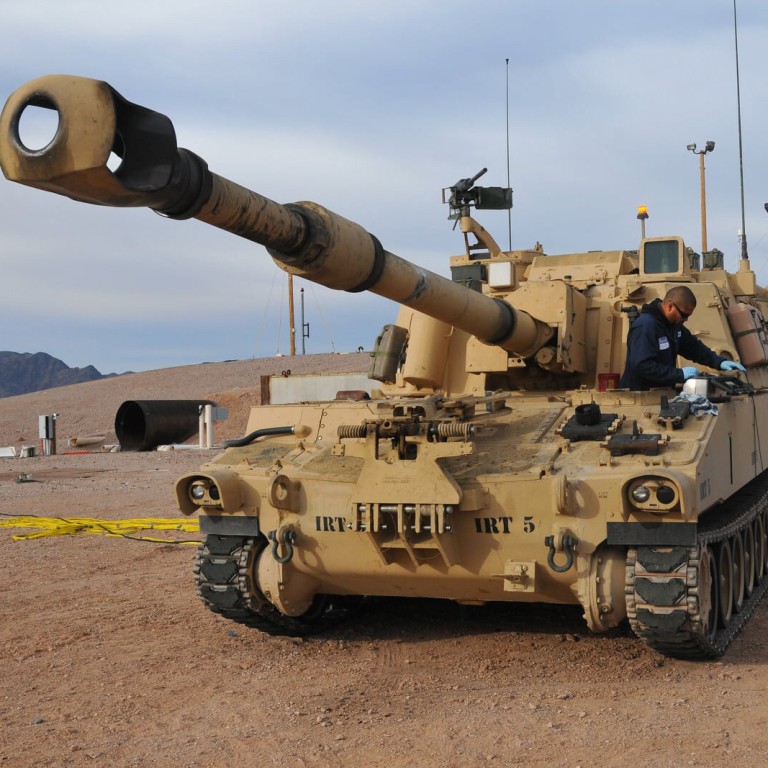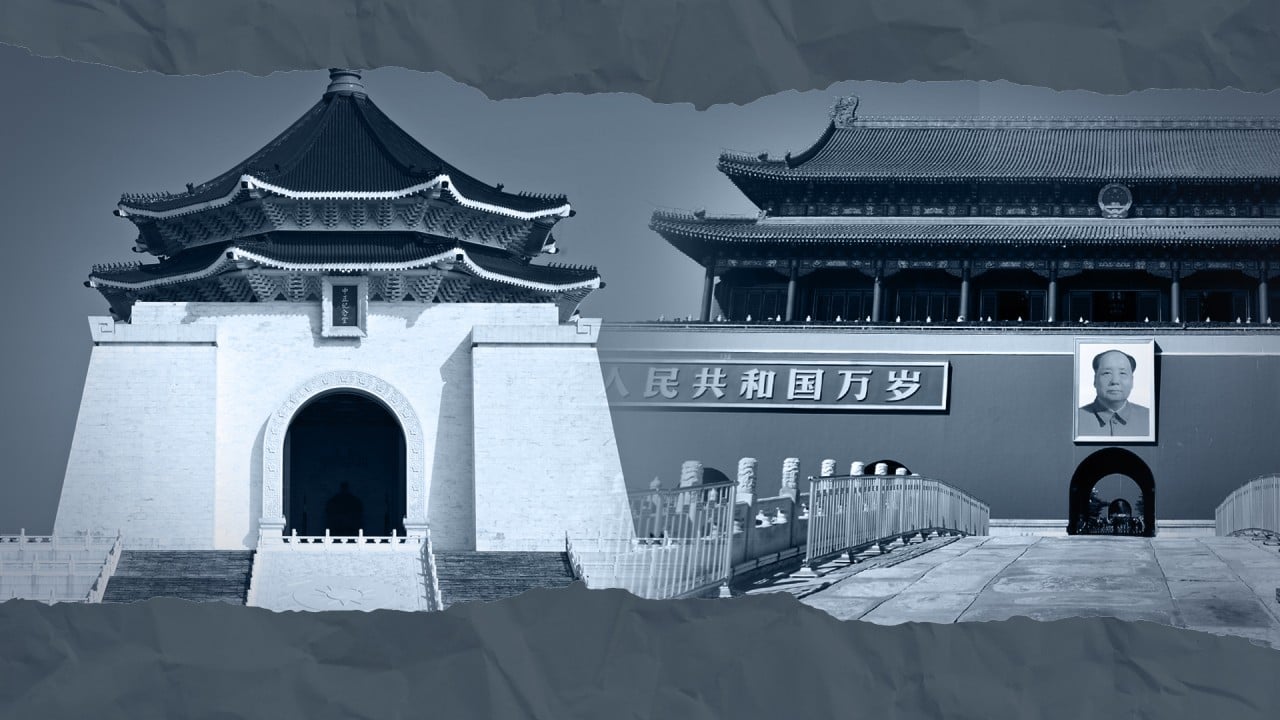
Taiwan howitzers delayed, ‘crowded out’ of US production lines
- First batch of 40 mid-range artillery systems due this year will not arrive at the island until 2026, defence ministry reveals
- Local reports lay blame on war in Ukraine for delayed delivery of first weapons approved for sale to the island by Joe Biden administration
The ministry said on Monday it had been notified that next year’s expected delivery of howitzer artillery systems would be delayed until 2026. “The production line is crowded out,” it said.
“We have cooperated with the United States to research and develop advanced alternatives to meet actual operational needs,” the ministry said, adding it would continue to communicate with the US on the issue.
Taiwan’s United Daily News reported on Monday that some lawmakers had been told by the defence ministry that the US could not supply the first batch of the promised 40 howitzer systems because of the war in Ukraine.
The 155mm M109A6 medium self-propelled howitzer artillery systems can fire eight projectiles a minute at a range of 30km (18 miles). They are part of a US$750 million arms deal approved in August by the US State Department.
According to the Pentagon, the package includes 1,698 precision guidance kits for munitions, as well as spares, training, ground stations and upgrades for the island’s previous generation howitzers.
The Biden administration has approved a further two arms packages for Taiwan, including last month’s US$95 million missile support deal covering equipment, training and other items to support its air defence system, with Raytheon Technologies as prime contractor.
According to the US, the deal will support Taiwan’s continuing efforts to modernise its armed forces and maintain a credible defensive capability.
Washington’s continued support of arms sales to the island follows its efforts under Donald Trump to boost Taiwanese defences, aimed at discouraging an invasion from the Chinese mainland.
Sales last year included drones and other coastal missile defences to upgrade the island’s capabilities.
Beijing, which regards Taiwan as a breakaway province and opposes any formal relations between the island and other nations, has condemned the arms sales, saying they seriously damage China-US relations and stability in the Taiwan Strait.
China vows to hit back at US$750 million US arms sale to Taiwan
Military exercises by the PLA targeting the island have ramped up but Beijing says these drills are about defending its sovereignty, and has blamed the Taiwanese ruling party – the Democratic Progressive Party – for pushing a pro-independence agenda by moving closer to the US.
The island – which cites the military threat from Beijing as the impetus for its weapons and defence upgrades – will hold its annual Han Kuang war exercise this month, to test the effectiveness of its asymmetric warfare strategy, drawing on lessons from the Ukraine war.
Zhou Chenming, a researcher from the Yuan Wang military science and technology think tank in Beijing, said US commitments to provide weapons to Ukraine could be a reason for the setback but it might also reflect Washington’s delicate recalibration of its Taiwan policies.
“I don’t think the Russia-Ukraine military crisis can absorb large amounts of military resources from the US – especially as Ukraine prefers light weapons instead of heavy weapons like the M109 howitzer – to a degree that the US can no longer provide arms to Taiwan,” he said.
“This move can be interpreted as the US wanting to cool the warm ties with Taiwan for a while, as a supposed Boeing aircraft deal [also] went nowhere. But this cooling in ties is temporary and tactical, and won’t change the fundamental cooperation between the two sides.”
Taiwan aims to use lessons from Ukraine in annual Han Kuang war game
Liu Weidong, a US affairs analyst from the Chinese Academy of Social Sciences, said Washington sees threats from Russia and China differently.
“The US sees China as a long-term and fundamental threat, and Russia an immediate and urgent threat. So Washington has to make quick responses to aid Ukraine – such as supplying the latest weapons – so as to drag Russia deeper into the war, because this task is more imminent,” he said.
“However, to stop offering Taiwan some arms doesn’t amount to a strategic shift in US policy towards China, since Taiwan is a place where the US has security assurance. This is at most a tactical change because of the Russia-Ukraine conflict.”
Additional reporting by Kristin Huang


